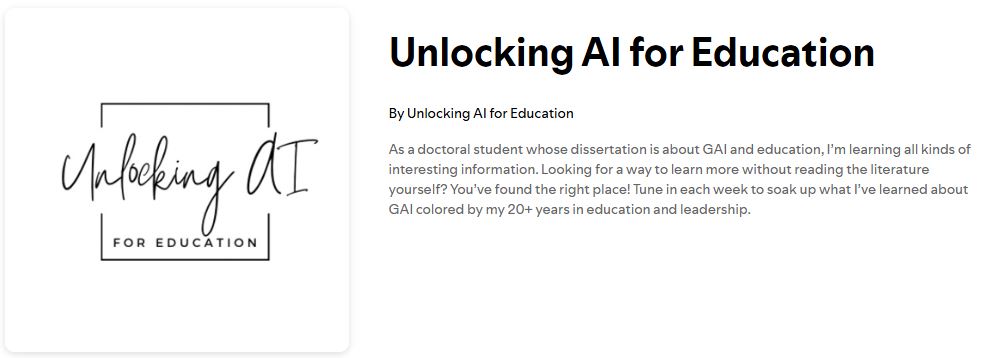What is AI Prompting Certification?
If you haven’t noticed, the world is changing and changing fast.
AI and Generative AI is growing at a phenomenal pace and I believe one of the easiest and best opportunities right now is in the AI prompting space.
AI prompting certification is a formal credential that verifies an individual’s expertise in crafting effective prompts for artificial intelligence models, such as ChatGPT, DALL·E, and other generative AI systems.
These certifications assess a candidate’s ability to interact with AI in ways that maximize efficiency, creativity, and accuracy.
AI prompting involves formulating inputs in a structured manner to generate desired outputs, whether in text, image, or code format.
A certification in AI prompting ensures that professionals understand AI behavior, optimization techniques, prompt engineering strategies, and ethical considerations in AI interactions.
As companies and businesses start to use AI more and more, they are going to want to know the person giving the inputs to the AI bot/computer knows what they are doing and some of the potential pitfalls of bad inputs.
To understand what AI prompting certification is, it’s necessary to understand the difference between AI and GAI.
They are often used interchangeably but there are some subtle differences.
AI vs. Generative AI: Key Differences and Applications
Artificial Intelligence (AI) is a broad field that powers many modern technologies, from recommendation systems to autonomous vehicles.
Think algorithms, google maps, etc.
However, within AI, Generative AI (GAI) has emerged as a groundbreaking subset, capable of creating new content, such as text, images, music, and even videos.
While both AI and Generative AI are transformative, they serve different purposes and operate in distinct ways.
Let’s explore the differences between AI and GAI, their applications, and how they are shaping the future of technology.
This will help you better understand why AI prompting certification is quickly becoming a new business sector in our society.
What Is AI?
AI refers to the ability of machines to mimic human intelligence by performing tasks such as data analysis, decision-making, language understanding, and automation.
AI systems can be classified into several categories, including:
- Rule-Based AI: Uses predefined rules to make decisions (e.g., expert systems in medical diagnosis).
- Machine Learning (ML): AI learns from data patterns to improve its performance over time (e.g., fraud detection, recommendation systems).
- Deep Learning (DL): A subset of ML that uses neural networks to analyze large datasets, often used in computer vision and speech recognition.
AI is used in:
- Automation: AI optimizes business processes and reduces manual work.
- Predictive Analytics: AI forecasts trends based on historical data.
- Decision-Making: AI assists in fields like finance and healthcare.
AI primarily analyzes, classifies, and makes predictions based on existing data, but it does not generate new creative outputs.
That is a key thing to remember. The AI prompting certification is focused on how to get generative AI to give better outputs.
So let’s look at what generative AI (GAI) is.
What Is Generative AI (GAI)?
Generative AI is a specialized branch of AI focused on creating new content rather than just analyzing data.
Using advanced deep learning models, such as Generative Adversarial Networks (GANs) and Transformer-based models (e.g., GPT, DALL·E), GAI can:
- Generate Text: Chatbots, content creation, coding assistance (e.g., ChatGPT, Bard, GitHub Copilot).
- Create Images & Videos: AI-generated art, deepfake technology, and video synthesis (e.g., MidJourney, DALL·E, Runway).
- Compose Music & Audio: AI-generated songs, speech synthesis, and voice cloning.
- Design & Engineering: AI-powered architectural and product design.
Unlike traditional AI, which works within structured tasks, Generative AI produces entirely new data that resembles human creativity while leveraging vast amounts of learned information.
Key Differences Between AI and Generative AI
| Feature | Artificial Intelligence (AI) | Generative AI (GAI) |
|---|---|---|
| Purpose | Analyzes, classifies, and predicts based on data | Creates new content, such as text, images, music, and video |
| Functionality | Solves structured problems, optimizes processes | Generates original outputs based on learned data |
| Learning Approach | Supervised/unsupervised learning, reinforcement learning | Uses deep learning models like GANs and transformers |
| Applications | Automation, decision-making, recommendation systems | Content creation, creative design, media generation |
| Examples | Fraud detection, self-driving cars, chatbots | AI-generated art, text generation, deepfake videos |
The Future of AI and Generative AI
Both AI and Generative AI are driving innovation across industries:
- AI continues to improve automation, efficiency, and decision-making in fields like healthcare, finance, and cybersecurity.
- AI is also starting to seep in to the educational sector and the use of AI in Education is growing.
- Generative AI is revolutionizing content creation, making it easier for individuals and businesses to generate high-quality visuals, text, and audio with minimal effort.
However, Generative AI also raises ethical concerns, including misinformation (e.g., deepfakes), intellectual property issues, and bias in generated content.
As these technologies evolve, regulations and safeguards will be necessary to ensure responsible AI development and use.
While AI focuses on analysis, predictions, and decision-making, Generative AI goes a step further by creating entirely new content.
Both technologies are shaping the digital landscape, but Generative AI, in particular, is unlocking unprecedented possibilities in creativity and automation.
As AI continues to evolve, the line between analytical intelligence and generative capabilities will likely blur, leading to even more powerful and sophisticated AI systems.
So now we are back to the basis of this article. Mainly, what is AI prompting certification and why might you need it?
Why AI Prompting Certification Will Be Necessary in the Future
As AI continues to evolve, industries are integrating generative AI tools into daily operations, making AI proficiency a valuable skill.
Here’s why AI prompting certification will be crucial in the future:
- Industry Demand: Businesses are increasingly relying on AI to automate tasks, improve customer interactions, and generate creative content. Certified AI prompt engineers will be in high demand.
- Workplace Efficiency: Employees skilled in AI prompting can significantly enhance productivity by effectively leveraging AI tools.
- Competitive Edge: Certification distinguishes candidates in job applications, showcasing specialized skills in AI interaction and prompt engineering.
- Ethical & Responsible AI Use: Understanding the implications of AI outputs and ensuring unbiased, accurate results will be a critical aspect of AI deployment.
- New Career Opportunities: AI prompting is becoming a distinct professional field, creating jobs in various sectors like marketing, education, programming, and content creation.
Jobs That Require AI Prompting Certification
Professionals with AI prompting certification can explore a variety of career paths, including:
- AI Prompt Engineer: Specializing in designing high-quality prompts for AI systems to optimize performance.
- AI-Assisted Content Creator: Using AI to generate articles, blogs, scripts, and creative content efficiently.
- Chatbot Developer: Crafting conversational AI responses for customer service and virtual assistants.
- Marketing & SEO Specialist: Leveraging AI for automated marketing copy, SEO optimization, and targeted campaigns.
- AI Consultant: Advising businesses on the best AI tools and strategies for automation and efficiency.
- Data Analyst: Using AI-powered tools for analyzing and interpreting large datasets.
- AI Ethics & Policy Advisor: Ensuring AI applications follow ethical guidelines and compliance regulations.
- Educator & Trainer: Teaching AI prompting techniques in schools, universities, or corporate training programs.
List of Potential AI Prompting Certification Programs
As AI prompting gains recognition, several organizations have introduced certification programs:
- OpenAI Prompt Engineering Certification – Covers best practices for interacting with OpenAI’s models.
- Google AI Prompting Specialization – A program under Google’s AI education initiative focusing on prompt optimization.
- Microsoft AI Certification for Prompt Engineering – Part of Microsoft’s AI training modules.
- Coursera AI Prompting Course – Courses offered by top universities and institutions.
- Udemy AI Prompt Engineering Bootcamp – A practical, hands-on approach to mastering AI interaction.
- IBM AI Prompting Professional Certificate – Focuses on AI-assisted workflow automation.
- LinkedIn Learning AI Prompting Pathway – Provides industry-recognized training on AI-assisted work environments.
- Stanford AI Prompting & Ethics Course – An academic approach to understanding prompt engineering and its ethical aspects.
- USF – I even saw this morning that USF is starting a 5 week AI prompting certification (it’s actually the catalyst of why I chose to write this article).
Conclusion
AI prompting certification is an essential credential for professionals looking to stay ahead in the rapidly evolving job market.
As AI becomes more integrated into daily business operations, certified prompt engineers and AI specialists will play a critical role in optimizing AI interactions.
Whether you’re an aspiring AI professional or looking to enhance your career, investing in an AI prompting certification could be a game-changing move for the future.
If you get a certification early, use it to get a job and some experience, you’ll be on the front end of this wave and maybe in 5-10 years you will be one of the highly sought AI prompting specialists with experience that you can use to to get an even higher paying job.
This is especially true if you have leadership abilities because my guess is that if this sector grows, eventually large companies will have teams of AI specialists who will need to be managed by somebody else with experience and leadership positions tend to come with higher salary packages (aka – more money).
**The world is changing rapidly. It’s both fun and scary at the same time!
Please consider sharing this article with a friend or posting it on social media so others can join the conversation.
Now What?
To join the conversation on Facebook please check out our growing AI in Education Facebook Group.
If you’re in the education sector, consider checking out the AI training and consulting resources we have available through our education company.
If your a podcast junkie (like I am) and enjoy this topic, my wife has a podcast all about AI in education.
Feel free to check it out below and leave a review (if you’re so inclined).
If you’d like a personal relationship with Jesus Christ, visit our salvation page.
God Bless,

Jason and Daniele



